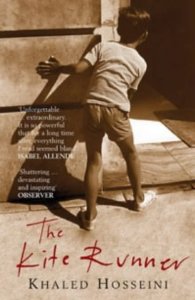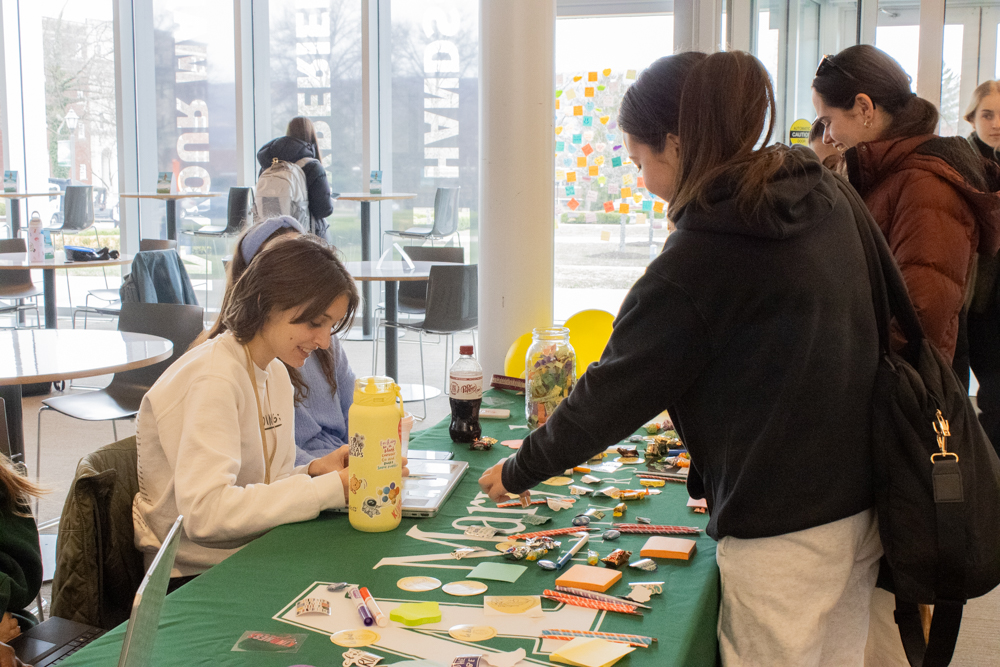
- Cover of The Kite Runner
By Victoria Clarizio
Staff Writer
You may know Khaled Hosseini as the author of the best selling books The Kite Runner and A Thousand Splendid Suns, but he is also a humanitarian making great efforts to help women and children in Afghanistan, where his novels take place.
Hosseini was born in Afghanistan, but unlike millions of other Afghans he was lucky enough to immigrate to the United States. On his website he even says: “on the list of the most fortunate Afghans on the planet, I have to rank at the very top.” In 1976 Hosseini’s family moved to Paris and had planned to move back to Afghanistan in1980. However, the Soviet army had occupied their home by then, making their return impossible. They claimed political asylum in the United States because Hosseini’s father was an Afghan diplomat. Before becoming an author, Hosseini studied medicine in California and practiced full time until 2004. In 2003 his first novel, The Kite Runner, was published and Hosseini began a journey that continues strongly now. His second novel, A Thousand Splendid Suns, was published in May of 2007. In September of that year, he made a life changing journey to Afghanistan.
The events that prevented Hosseini’s family from returning home in 1980 began a long and bloody period in Afghanistan’s history, which they are slowly recovering from today. Hosseini’s novels take place against the backdrop of this violent period in Afghanistan’s recent history and provide an eye opening tale to those not familiar with the events that took place during this time. In 1979, the Communist government of Afghanistan asked the Soviet Union to honor the treaty they had and send troops to fight against the Mujahideen Resistance. The Soviet Union’s first act was to kill the president, Hafizullah Amin, and put Babrak Karmal, who was more complacent with their goals, in his place. The Soviet occupation lasted nine years, resulting in the loss of countless lives on both sides. When they finally pulled out, the country was in turmoil and looking for direction. The Taliban took advantage of this chaos and took over as the ruling government.
After taking a trip in 2007 to his home country and seeing some of the terrible conditions the people were living in, Hosseini wanted to do something to help them. Having left there as a child, Hosseini had lived in a more peaceful Afghanistan and was saddened by the state his homeland had fallen into. So he started The Khaled Hosseini Foundation. The primary mission of this foundation is to provide “humanitarian assistance to the people of Afghanistan to help alleviate suffering and build healthy communities.” Their main way of doing this is to provide monetary grants to organizations that assist women, children and refugees in Afghanistan. Last year the foundation joined with the United Nations High Commissioner for Refugees (UNHCR) to set up a matching gift program for their Shelter Program in Afghanistan. Hosseini’s foundation promised to match the first 100,000 dollars received by the UNHCR in 2009 for this program. By doing this, they were able to provide adequate housing to thousands of refugees who have recently returned to their home country. The UNHCR also named Hosseini a goodwill envoy to Afghanistan. Being a refugee himself, Hosseini feels a certain connection to these people who are displaced from their homes and is doing all he can to help them.
While the UNHCR and organizations like The Khaled Hosseini Foundation have made tremendous progress in assisting the people of Afghanistan, the instability and insecurity that still exists in the country is making their efforts all the more difficult. During one trip to this country, Hosseini said, “After almost 30 years of conflict, peace is what all Afghans wish for.” Creating peace within the war torn country would be a catalyst in speeding up the rebuilding and repairing that needs to be done. Khaled Hosseini is working towards creating that peace, through the foundation he started and through his novels, which have informed and educated readers about the history of Afghanistan.



![Reblog this post [with Zemanta]](https://img.zemanta.com/reblog_e.png?x-id=cf344426-c36d-465b-a7d7-41a04ef364bc)






